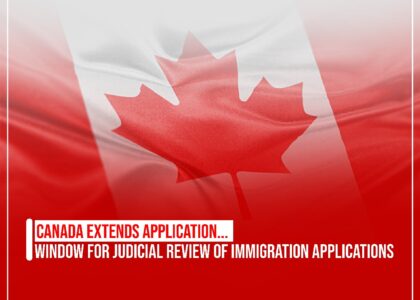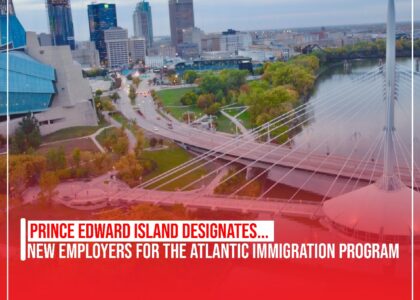In a bid to address labor shortages in rural areas and attract newcomers to regions outside of major cities, Immigration, Refugees and Citizenship Canada (IRCC) has officially launched the Rural Community Immigration Pilot (RCIP). This pilot program aims to provide a direct pathway to permanent residence for foreign nationals who want to settle in rural Canadian communities, help fill labor gaps, and contribute to the economic growth of these areas.
This article covers the key details of the RCIP, including the participating communities, eligibility requirements, and how the program serves as a replacement for the Rural and Northern Immigration Pilot Program (RNIP).
What is the Rural Community Immigration Pilot (RCIP)?
The RCIP is designed to help rural communities in Canada (outside Quebec) attract and retain skilled foreign workers. The pilot program addresses the labor shortages in these areas by offering permanent residency (PR) to foreign nationals who meet specific criteria. It encourages applicants who are committed to living long-term in smaller, rural communities, thereby contributing to the economic and social development of these regions.
The RCIP provides a clear immigration pathway for foreign nationals to gain permanent residence in Canada, fostering long-term immigration and community stability. The program is designed with the needs of the local labor market in mind, particularly in industries that face severe labor shortages.
Participating Communities in the Rural Community Immigration Pilot
On January 30, 2025, the IRCC announced the 14 rural communities selected to take part in the RCIP. These communities are spread across various provinces in Canada and are now officially open for applicants looking to apply for permanent residency through this pilot program. The chosen communities are:
| Community | Province |
|---|---|
| Pictou County | Nova Scotia |
| North Bay | Ontario |
| Sudbury | Ontario |
| Timmins | Ontario |
| Sault Ste. Marie | Ontario |
| Thunder Bay | Ontario |
| Steinbach | Manitoba |
| Altona/Rhineland | Manitoba |
| Brandon | Manitoba |
| Moose Jaw | Saskatchewan |
| Claresholm | Alberta |
| West Kootenay | British Columbia |
| North Okanagan Shuswap | British Columbia |
| Peace Liard | British Columbia |
Each of these communities will work with local economic development organizations to help identify specific labor gaps and recommend qualified candidates for permanent residency. These organizations will play a crucial role in selecting trusted employers and guiding foreign nationals through the application process.
IRCC has emphasized that further details will be released soon, including specific timelines for when employers and potential candidates can begin submitting applications for the program.
Eligibility Criteria for RCIP
The RCIP is primarily focused on matching foreign workers with local employers in participating communities. Here are the main eligibility requirements:
- Employment Offer: You must have a genuine offer of employment from an approved employer in one of the participating communities. This employer must be recognized by a local economic development organization.
- Work Experience: Applicants need relevant work experience that matches the job offer’s requirements. However, this condition can be waived for international graduates from eligible Canadian post-secondary institutions, provided they meet other specific conditions.
- Language Proficiency: Applicants must meet the Canadian Language Benchmark (CLB) required for the job, which varies depending on the National Occupational Classification (NOC) TEER (Training, Education, Experience, and Responsibilities) level of the position.
- Educational Requirements: At a minimum, applicants must have completed secondary school (high school). Higher education credentials may be required based on the job’s qualifications.
- Proof of Funds: Applicants must demonstrate that they have sufficient financial resources to support themselves and their families for one year after arriving in Canada.
- Intent to Reside: Applicants must demonstrate their intent to live in the designated community where they have received the job offer.
- Certificate of Recommendation: Candidates must have a valid certificate of recommendation from the economic development organization representing the participating community at the time of application.
- Valid Temporary Resident Status (for applicants within Canada): Applicants who are already in Canada must have valid temporary resident status when applying and maintain that status until they receive permanent residency.
These requirements ensure that candidates are well-positioned to contribute to the local economy and integrate successfully into the community they will join.
Also Read: Canada Reduces International Student Permits for Second Consecutive Year: What You Need to Know
Replacement of the Rural and Northern Immigration Pilot Program (RNIP)
The RCIP replaces the Rural and Northern Immigration Pilot Program (RNIP), which officially ceased accepting new applications in August 2024. The RNIP was originally launched to encourage immigration to Canada’s more remote regions, and while it served its purpose, it has now been succeeded by the RCIP, which is designed to build upon the lessons learned from the previous program.
Despite this shift, Marc Miller, Canada’s Minister of Immigration, confirmed plans to potentially make the RNIP a permanent program in the future. The RCIP is expected to fill similar roles in attracting workers to rural communities, while addressing the evolving needs of both employers and immigrants.
What is an Immigration Pilot Program?
Immigration pilot programs like the RCIP are temporary pathways designed to test new methods for addressing specific regional or sectoral needs. They usually run for up to five years, after which they are either extended, modified, or discontinued based on their success.
These pilots help the Canadian government experiment with new immigration strategies, measure their effectiveness, and adjust policies accordingly. If a pilot program proves successful, it may eventually evolve into a permanent immigration program.
How RCIP Benefits Rural Communities
The Rural Community Immigration Pilot aims to support rural communities that are facing significant labor shortages. By attracting skilled foreign workers, the program aims to stimulate local economies, create jobs, and foster long-term community development.
Additionally, the RCIP provides workers with a pathway to permanent residency, making it an attractive option for those who want to settle in Canada on a permanent basis. For employers, it creates a reliable pipeline of qualified talent to fill positions that are difficult to staff locally.
How to Apply for the Rural Community Immigration Pilot
To apply for the RCIP, candidates must secure a job offer from a participating employer in one of the designated communities. After obtaining a job offer, candidates can apply for permanent residency by following the application guidelines set out by IRCC, ensuring they meet all the necessary eligibility criteria.
It’s important to stay updated on timelines and application procedures, as these may vary based on the community and employer involved.
Conclusion
The launch of the Rural Community Immigration Pilot (RCIP) presents an exciting opportunity for foreign nationals looking to settle in rural communities across Canada. This program not only helps address labor shortages but also fosters community growth and integration. By offering a pathway to permanent residence, the RCIP aims to make rural areas an attractive destination for newcomers looking to contribute to Canada’s economy and enjoy a fulfilling life in smaller, thriving communities.
If you’re interested in applying for the RCIP, make sure you meet the eligibility criteria and connect with the designated economic development organizations in participating communities for further guidance on the application process.





